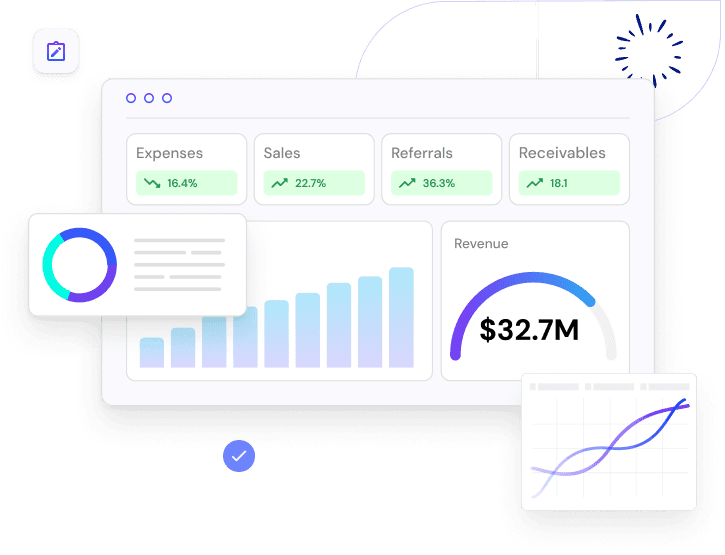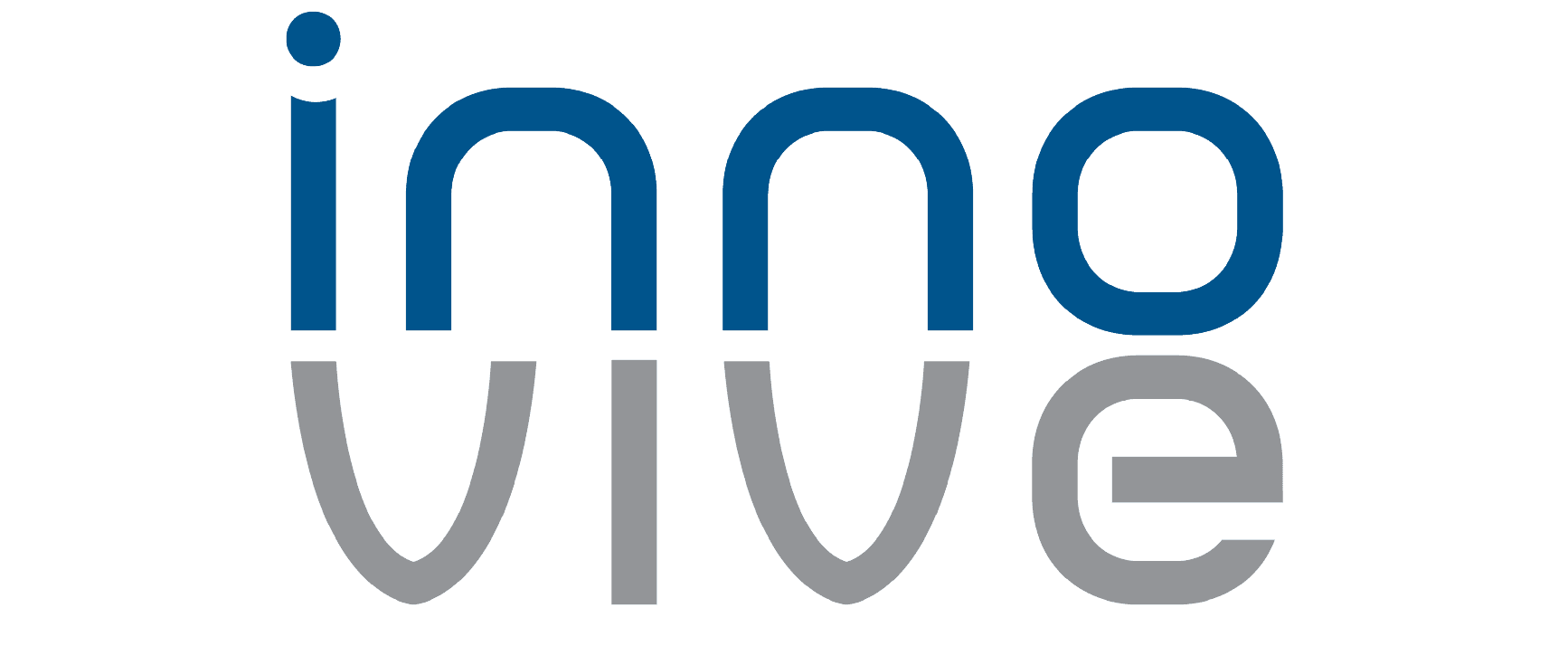
NETSUITE EXPERTS
Hands-on NetSuite management to grow your business
Hands-on NetSuite management to grow your business
Hands-on NetSuite management to grow your business
Devma partners with you to simplify and customize NetSuite, ensuring your team has the tools and confidence to achieve your mission with efficiency and impact.
Let’s Connect




Partnered with:




NETSUITE EXPERTS
Hands-on NetSuite management to grow your business
Devma partners with you to simplify and customize NetSuite, ensuring your team has the tools and confidence to achieve your mission with efficiency and impact.
Let’s Connect

Partnered with:





NETSUITE EXPERTS
Hands-on NetSuite management to grow your business
Devma partners with you to simplify and customize NetSuite, ensuring your team has the tools and confidence to achieve your mission with efficiency and impact.
Let’s Connect

Partnered with:




WHAT WE OFFER
Why Teams Choose Us
Choosing the right partner means finding a team you can trust. Devma blends NetSuite expertise with a collaborative approach to deliver solutions that fit today and scale tomorrow.
Personalized Partnership
Deep NetSuite Expertise
Custom Solutions
Practical & Transparent
Long-Term Value
Personalized Partnership
We’re a small, focused team, so you’ll never feel like just another ticket in a queue. From kickoff to go-live, you work directly with the consultants doing the work—not layers of account managers. That means faster decisions, more attentive communication, and a relationship built on trust and collaboration. The result is a partnership that feels like an extension of your own staff, not an outside vendor.
Personalized Partnership
Deep NetSuite Expertise
Custom Solutions
Practical & Transparent
Long-Term Value
Personalized Partnership
We’re a small, focused team, so you’ll never feel like just another ticket in a queue. From kickoff to go-live, you work directly with the consultants doing the work—not layers of account managers. That means faster decisions, more attentive communication, and a relationship built on trust and collaboration. The result is a partnership that feels like an extension of your own staff, not an outside vendor.
Personalized Partnership
Deep NetSuite Expertise
Custom Solutions
Practical & Transparent
Long-Term Value
Personalized Partnership
We’re a small, focused team, so you’ll never feel like just another ticket in a queue. From kickoff to go-live, you work directly with the consultants doing the work—not layers of account managers. That means faster decisions, more attentive communication, and a relationship built on trust and collaboration. The result is a partnership that feels like an extension of your own staff, not an outside vendor.
Personalized Partnership
Deep NetSuite Expertise
Custom Solutions
Practical & Transparent
Long-Term Value
Personalized Partnership
We’re a small, focused team, so you’ll never feel like just another ticket in a queue. From kickoff to go-live, you work directly with the consultants doing the work—not layers of account managers. That means faster decisions, more attentive communication, and a relationship built on trust and collaboration. The result is a partnership that feels like an extension of your own staff, not an outside vendor.
Personalized Partnership
Deep NetSuite Expertise
Custom Solutions
Practical & Transparent
Long-Term Value
Personalized Partnership
We’re a small, focused team, so you’ll never feel like just another ticket in a queue. From kickoff to go-live, you work directly with the consultants doing the work—not layers of account managers. That means faster decisions, more attentive communication, and a relationship built on trust and collaboration. The result is a partnership that feels like an extension of your own staff, not an outside vendor.
Personalized Partnership
Deep NetSuite Expertise
Custom Solutions
Practical & Transparent
Long-Term Value
Personalized Partnership
We’re a small, focused team, so you’ll never feel like just another ticket in a queue. From kickoff to go-live, you work directly with the consultants doing the work—not layers of account managers. That means faster decisions, more attentive communication, and a relationship built on trust and collaboration. The result is a partnership that feels like an extension of your own staff, not an outside vendor.
OUR CLIENTS
Who We Serve
We work with diverse organizations across industries, supporting key decision-makers and departments with tailored NetSuite solutions that drive growth
Roles & departments we support

Executive Leadership
CEOs
Strategic leadership seeking comprehensive NetSuite solutions
CFOs
Financial executives requiring robust reporting and compliance
COOs
Operations leaders optimizing business processes

Executive Leadership
CEOs
Strategic leadership seeking comprehensive NetSuite solutions
CFOs
Financial executives requiring robust reporting and compliance
COOs
Operations leaders optimizing business processes

Executive Leadership
CEOs
Strategic leadership seeking comprehensive NetSuite solutions
CFOs
Financial executives requiring robust reporting and compliance
COOs
Operations leaders optimizing business processes

Executive Leadership
CEOs
Strategic leadership seeking comprehensive NetSuite solutions
CFOs
Financial executives requiring robust reporting and compliance
COOs
Operations leaders optimizing business processes

Executive Leadership
CEOs
Strategic leadership seeking comprehensive NetSuite solutions
CFOs
Financial executives requiring robust reporting and compliance
COOs
Operations leaders optimizing business processes
Executive Leadership
CEOs
Strategic leadership seeking comprehensive NetSuite solutions
CFOs
Financial executives requiring robust reporting and compliance
COOs
Operations leaders optimizing business processes

Operational Departments
Operations & Logistics
Streamlining supply chain and operational workflows
Sales & Customer Service
Enhancing customer relationships and sales processes
Accounting & Finance
Managing financial operations and regulatory compliance

Operational Departments
Operations & Logistics
Streamlining supply chain and operational workflows
Sales & Customer Service
Enhancing customer relationships and sales processes
Accounting & Finance
Managing financial operations and regulatory compliance

Operational Departments
Operations & Logistics
Streamlining supply chain and operational workflows
Sales & Customer Service
Enhancing customer relationships and sales processes
Accounting & Finance
Managing financial operations and regulatory compliance

Operational Departments
Operations & Logistics
Streamlining supply chain and operational workflows
Sales & Customer Service
Enhancing customer relationships and sales processes
Accounting & Finance
Managing financial operations and regulatory compliance

Operational Departments
Operations & Logistics
Streamlining supply chain and operational workflows
Sales & Customer Service
Enhancing customer relationships and sales processes
Accounting & Finance
Managing financial operations and regulatory compliance
Operational Departments
Operations & Logistics
Streamlining supply chain and operational workflows
Sales & Customer Service
Enhancing customer relationships and sales processes
Accounting & Finance
Managing financial operations and regulatory compliance

Technology Teams
IT Directors
Technology teams implementing and maintaining NetSuite systems
System Administrators
Technical staff managing day-to-day NetSuite operations

Technology Teams
IT Directors
Technology teams implementing and maintaining NetSuite systems
System Administrators
Technical staff managing day-to-day NetSuite operations

Technology Teams
IT Directors
Technology teams implementing and maintaining NetSuite systems
System Administrators
Technical staff managing day-to-day NetSuite operations

Technology Teams
IT Directors
Technology teams implementing and maintaining NetSuite systems
System Administrators
Technical staff managing day-to-day NetSuite operations

Technology Teams
IT Directors
Technology teams implementing and maintaining NetSuite systems
System Administrators
Technical staff managing day-to-day NetSuite operations
Technology Teams
IT Directors
Technology teams implementing and maintaining NetSuite systems
System Administrators
Technical staff managing day-to-day NetSuite operations
Needs we support
Needs we support
Needs we support
Companies with IT Teams who need support
Organizations requiring additional expertise or specialized NetSuite knowledge to complement their existing team
Companies needing long-term NetSuite support instead of contractors
Businesses that prefer steady, reliable, ongoing support rather than ad-hoc contractor relationships
Companies with no in-house NetSuite team
Companies lacking dedicated internal NetSuite resources who need comprehensive external support

OUR EXPERTISE
OUR EXPERTISE
Proven Track Record
Proven Track Record
At Devma, we bring a proven track record of success in NetSuite consulting. Our approach is built around user engagement and usability, ensuring solutions that work seamlessly for the people who rely on them every day. With hands-on experience in real end-user environments, our team understands the challenges your staff faces and designs practical solutions that deliver results.
2000+
Customizations
100+
Integrations
50+
Implementations
40+
Companies
5
Years

OUR EXPERTISE
Proven Track Record
At Devma, we bring a proven track record of success in NetSuite consulting. Our approach is built around user engagement and usability, ensuring solutions that work seamlessly for the people who rely on them every day. With hands-on experience in real end-user environments, our team understands the challenges your staff faces and designs practical solutions that deliver results.
2000+
Customizations
100+
Integrations
50+
Implementations
40+
Companies
5
Years

OUR EXPERTISE
Proven Track Record
At Devma, we bring a proven track record of success in NetSuite consulting. Our approach is built around user engagement and usability, ensuring solutions that work seamlessly for the people who rely on them every day. With hands-on experience in real end-user environments, our team understands the challenges your staff faces and designs practical solutions that deliver results.
2000+
Customizations
100+
Integrations
50+
Implementations
40+
Companies
5
Years

OUR EXPERTISE
Proven Track Record
At Devma, we bring a proven track record of success in NetSuite consulting. Our approach is built around user engagement and usability, ensuring solutions that work seamlessly for the people who rely on them every day. With hands-on experience in real end-user environments, our team understands the challenges your staff faces and designs practical solutions that deliver results.
2000+
Customizations
100+
Integrations
50+
Implementations
40+
Companies
5
Years

OUR EXPERTISE
Proven Track Record
At Devma, we bring a proven track record of success in NetSuite consulting. Our approach is built around user engagement and usability, ensuring solutions that work seamlessly for the people who rely on them every day. With hands-on experience in real end-user environments, our team understands the challenges your staff faces and designs practical solutions that deliver results.
2000+
Customizations
100+
Integrations
50+
Implementations
40+
Companies
5
Years
HOW WE WORK
Our Approach
Every project starts with understanding your business. Our proven five-step process ensures your NetSuite implementation is designed, built, and optimized with precision—so you get reliable results and a system that scales with you.
Step 2: Identify Problems & Challenges
Surface pain points, inefficiencies, and risks
Validate root causes through data, user feedback, and process analysis
Step 4: Build & Test
Configure, customize, or develop the required solution
Perform iterative testing (unit, functional, UAT) with stakeholder involvement
Ensure deployment readiness with training, documentation, and change management
01
02
03
04
05
Step 1: Assess the Current State
Understand existing systems, workflows, and stakeholder needs
Document how things operate today, including constraints and dependencies
Step 3: Define the Future State
Establish clear business and technical objectives
Design the target process, system architecture, and user experience
Prioritize requirements and outline the implementation roadmap
Step 5: Support & Maintenance
Provide ongoing monitoring, enhancements, and issue resolution
Offer post-go-live support, optimization, and continuous improvement cycles
Step 2: Identify Problems & Challenges
Surface pain points, inefficiencies, and risks
Validate root causes through data, user feedback, and process analysis
Step 4: Build & Test
Configure, customize, or develop the required solution
Perform iterative testing (unit, functional, UAT) with stakeholder involvement
Ensure deployment readiness with training, documentation, and change management
01
02
03
04
05
Step 1: Assess the Current State
Understand existing systems, workflows, and stakeholder needs
Document how things operate today, including constraints and dependencies
Step 3: Define the Future State
Establish clear business and technical objectives
Design the target process, system architecture, and user experience
Prioritize requirements and outline the implementation roadmap
Step 5: Support & Maintenance
Provide ongoing monitoring, enhancements, and issue resolution
Offer post-go-live support, optimization, and continuous improvement cycles
Step 2: Identify Problems & Challenges
Surface pain points, inefficiencies, and risks
Validate root causes through data, user feedback, and process analysis
Step 4: Build & Test
Configure, customize, or develop the required solution
Perform iterative testing (unit, functional, UAT) with stakeholder involvement
Ensure deployment readiness with training, documentation, and change management
01
02
03
04
05
Step 1: Assess the Current State
Understand existing systems, workflows, and stakeholder needs
Document how things operate today, including constraints and dependencies
Step 3: Define the Future State
Establish clear business and technical objectives
Design the target process, system architecture, and user experience
Prioritize requirements and outline the implementation roadmap
Step 5: Support & Maintenance
Provide ongoing monitoring, enhancements, and issue resolution
Offer post-go-live support, optimization, and continuous improvement cycles
01
02
03
04
05
Step 1: Assess the Current State
Understand existing systems, workflows, and stakeholder needs
Document how things operate today, including constraints and dependencies
Step 3: Define the Future State
Establish clear business and technical objectives
Design the target process, system architecture, and user experience
Prioritize requirements and outline the implementation roadmap
Step 5: Support & Maintenance
Provide ongoing monitoring, enhancements, and issue resolution
Offer post-go-live support, optimization, and continuous improvement cycles
Step 2: Mapping & Architecture
Define how data moves between NetSuite and external systems.
Surface pain points, inefficiencies, and risks
Validate root causes through data, user feedback, and process analysis
Step 4: Validation
Ensure accuracy, speed, and compliance across all touchpoints.
Configure, customize, or develop the required solution
Perform iterative testing (unit, functional, UAT) with stakeholder involvement
Ensure deployment readiness with training, documentation, and change management
Step 2: Identify Problems & Challenges
Surface pain points, inefficiencies, and risks
Validate root causes through data, user feedback, and process analysis
Step 4: Build & Test
Configure, customize, or develop the required solution
Perform iterative testing (unit, functional, UAT) with stakeholder involvement
Ensure deployment readiness with training, documentation, and change management
01
02
03
04
05
Step 1: Assess the Current State
Understand existing systems, workflows, and stakeholder needs
Document how things operate today, including constraints and dependencies
Step 3: Define the Future State
Establish clear business and technical objectives
Design the target process, system architecture, and user experience
Prioritize requirements and outline the implementation roadmap
Step 5: Support & Maintenance
Provide ongoing monitoring, enhancements, and issue resolution
Offer post-go-live support, optimization, and continuous improvement cycles
Step 2: Identify Problems & Challenges
Surface pain points, inefficiencies, and risks
Validate root causes through data, user feedback, and process analysis
Step 4: Build & Test
Configure, customize, or develop the required solution
Perform iterative testing (unit, functional, UAT) with stakeholder involvement
Ensure deployment readiness with training, documentation, and change management
01
02
03
04
05
Step 1: Assess the Current State
Understand existing systems, workflows, and stakeholder needs
Document how things operate today, including constraints and dependencies
Step 3: Define the Future State
Establish clear business and technical objectives
Design the target process, system architecture, and user experience
Prioritize requirements and outline the implementation roadmap
Step 5: Support & Maintenance
Provide ongoing monitoring, enhancements, and issue resolution
Offer post-go-live support, optimization, and continuous improvement cycles
01
02
03
04
05
Step 1: Assess the Current State
Understand existing systems, workflows, and stakeholder needs
Document how things operate today, including constraints and dependencies
Step 3: Define the Future State
Establish clear business and technical objectives
Design the target process, system architecture, and user experience
Prioritize requirements and outline the implementation roadmap
Step 5: Support & Maintenance
Provide ongoing monitoring, enhancements, and issue resolution
Offer post-go-live support, optimization, and continuous improvement cycles
Step 2: Step 2: Identify Problems & Challenges
Surface pain points, inefficiencies, and risks
Validate root causes through data, user feedback, and process analysis
Step 4: Build & Test
Configure, customize, or develop the required solution
Perform iterative testing (unit, functional, UAT) with stakeholder involvement
Ensure deployment readiness with training, documentation, and change management

TESIMONIALS
What Our Clients Are Saying
Real stories from teams who streamlined their workflow with Devma
“
Our partnership with Devma goes back more than five years, and they’ve become an integral part of how we operate. They’re a no-nonsense team that gets things done, but they also bring great energy and a wide range of skills. Working with them feels easy — they’re smart, approachable, and genuinely invested in our success.
Rasan Aycox
Digital Transformation Manager, Innovive
“
Devma is reliable, analytical, and always keeps our business goals front and center when scoping solutions. Their strong leadership and clear communication go well beyond traditional NetSuite support — they act as a true business partner, helping us make smarter, more scalable decisions
Omar Almidani
CEO, PureLife Dental
“
We’ve entrusted Devma with our entire NetSuite and ZoneBilling ecosystem, and they continue to earn that trust through high-quality delivery and a team with deep, complementary skills. They feel like a true partner, not just a vendor.
MaryBeth Dixon
Director, Financial Systems
“
We turned to Devma to help us complete our NetSuite implementation, and they didn’t just get us to the finish line — they’ve stayed alongside us ever since, continually monitoring, optimizing, and improving how we use NetSuite day to day
Ted Croce
CEO, Summit Truck Body
“
We’ve been working with Devma for many years, and they’ve grown alongside us as our business and supply chain have expanded. Their ability to continuously evolve and scale our NetSuite environment has kept our operations efficient and adaptable through every stage of growth
Tyler Wright
Vice President Supply Chain, Waiakea Bottling

TESIMONIALS
What Our Clients Are Saying
Real stories from teams who streamlined their workflow with Devma
“
Our partnership with Devma goes back more than five years, and they’ve become an integral part of how we operate. They’re a no-nonsense team that gets things done, but they also bring great energy and a wide range of skills. Working with them feels easy — they’re smart, approachable, and genuinely invested in our success.
Rasan Aycox
Digital Transformation Manager, Innovive
“
Devma is reliable, analytical, and always keeps our business goals front and center when scoping solutions. Their strong leadership and clear communication go well beyond traditional NetSuite support — they act as a true business partner, helping us make smarter, more scalable decisions
Omar Almidani
CEO, PureLife Dental
“
We’ve entrusted Devma with our entire NetSuite and ZoneBilling ecosystem, and they continue to earn that trust through high-quality delivery and a team with deep, complementary skills. They feel like a true partner, not just a vendor.
MaryBeth Dixon
Director, Financial Systems
“
We turned to Devma to help us complete our NetSuite implementation, and they didn’t just get us to the finish line — they’ve stayed alongside us ever since, continually monitoring, optimizing, and improving how we use NetSuite day to day
Ted Croce
CEO, Summit Truck Body
“
We’ve been working with Devma for many years, and they’ve grown alongside us as our business and supply chain have expanded. Their ability to continuously evolve and scale our NetSuite environment has kept our operations efficient and adaptable through every stage of growth
Tyler Wright
Vice President Supply Chain, Waiakea Bottling

TESIMONIALS
What Our Clients Are Saying
Real stories from teams who streamlined their workflow with Devma
“
Our partnership with Devma goes back more than five years, and they’ve become an integral part of how we operate. They’re a no-nonsense team that gets things done, but they also bring great energy and a wide range of skills. Working with them feels easy — they’re smart, approachable, and genuinely invested in our success.
Rasan Aycox
Digital Transformation Manager, Innovive
“
Devma is reliable, analytical, and always keeps our business goals front and center when scoping solutions. Their strong leadership and clear communication go well beyond traditional NetSuite support — they act as a true business partner, helping us make smarter, more scalable decisions
Omar Almidani
CEO, PureLife Dental
“
We’ve entrusted Devma with our entire NetSuite and ZoneBilling ecosystem, and they continue to earn that trust through high-quality delivery and a team with deep, complementary skills. They feel like a true partner, not just a vendor.
MaryBeth Dixon
Director, Financial Systems
“
We turned to Devma to help us complete our NetSuite implementation, and they didn’t just get us to the finish line — they’ve stayed alongside us ever since, continually monitoring, optimizing, and improving how we use NetSuite day to day
Ted Croce
CEO, Summit Truck Body
“
We’ve been working with Devma for many years, and they’ve grown alongside us as our business and supply chain have expanded. Their ability to continuously evolve and scale our NetSuite environment has kept our operations efficient and adaptable through every stage of growth
Tyler Wright
Vice President Supply Chain, Waiakea Bottling
Trusted by:
RESOURCES
The Latest From Our Blog
Stay up to date with fresh ideas, practical tips, and expert takes on how technology and NetSuite are transforming today’s businesses.
DISCOVER DEVMA
Hands-on NetSuite mangement to grow your business
Devma manages your Netsuite environment and provides custom solutions so your team can be more efficient and focus on achieving your company’s mission.
Let’s Connect
DISCOVER DEVMA
Hands-on NetSuite mangement to grow your business
Devma manages your Netsuite environment and provides custom solutions so your team can be more efficient and focus on achieving your company’s mission.
Let’s Connect
DISCOVER DEVMA
Hands-on NetSuite mangement to grow your business
Devma manages your Netsuite environment and provides custom solutions so your team can be more efficient and focus on achieving your company’s mission.
Let’s Connect
DISCOVER DEVMA
Hands-on NetSuite mangement to grow your business
Devma manages your Netsuite environment and provides custom solutions so your team can be more efficient and focus on achieving your company’s mission.
Let’s Connect
DISCOVER DEVMA
Hands-on NetSuite mangement to grow your business
Devma manages your Netsuite environment and provides custom solutions so your team can be more efficient and focus on achieving your company’s mission.
Let’s Connect
DISCOVER DEVMA
Hands-on NetSuite mangement to grow your business
Devma manages your Netsuite environment and provides custom solutions so your team can be more efficient and focus on achieving your company’s mission.
Let’s Connect
DISCOVER DEVMA
Hands-on NetSuite mangement to grow your business
Devma manages your Netsuite environment and provides custom solutions so your team can be more efficient and focus on achieving your company’s mission.
Let’s Connect
We alleviate Netsuite challenges to help you achieve your company mission.
@ 2025 Devma Co. All Rights reserved.
We alleviate Netsuite challenges to help you achieve your company mission.
@ 2025 Devma Co. All Rights reserved.
We alleviate Netsuite challenges to help you achieve your company mission.
@ 2025 Devma Co. All Rights reserved.









